The fifth mindfulness meditation practice is similar to the previous four practices. It continues where the previous one left off.
 As with the previous guided meditation practices, there is no need to start on this one until you feel really comfortable with the first four practices. The 21 day habit forming regime applies here as well.
As with the previous guided meditation practices, there is no need to start on this one until you feel really comfortable with the first four practices. The 21 day habit forming regime applies here as well.
Since all of the meditation practices thus far are related to mindfulness of breathing, you could make a case that practicing each for a week would produce a result similar to practicing any one of them for 21 days. You are free to make your choice on this
Preparation
The preparation for this guided meditation practice is identical to what you did for your first, second, third, and fourth guided meditation practices. If you feel like it, you may try a different preparation for this practice. Doing so is not necessary.
So find a comfortable position where you will not be disturbed for at least 9 minutes and get yourself ready for this guided meditation practice.
Meditation Practice
This meditation practice begins the same way as the previous one. So you will once again begin with the sound of three bells, followed by six deep breaths, and the relaxing phrases to bring you into your body and to the present moment.
During the first mindfulness meditation practice, you learned to recognize your in breath as in breath. You also learned to recognize your out breath as out breath. As a meditative aid, you learned to say to yourself “in” as you breathed in and you learned to say to yourself “out” as you breathed out. These little words helped you to develop mindfulness of breathing.
You probably noticed that as you followed your in breath for a full 9 minutes day in and day out your in breath became deeper. You also probably noticed that as you followed your out breath day by day your out breath became slower.
This led you to the second meditation practice. As you followed your in breath, you said to yourself, “deep.” As you followed you out breath, you said to your self, “slow.” These words helped you to follow your in breath (deep) and to follow your out breath (slow).
Now you may have noticed that as your in breath becomes deeper, you begin to feel calm. You may have also noticed that as your out breath becomes slower, you begin to feel at ease.
Continuing in this way, as you breathe in, you may feel such calm that the beginnings of a half smile appear on your face. The smile may be just the beginnings of one resulting from feeling calm and at ease. This practices is also know as “mouth yoga!”
As you breathe out, you may feel a sense of release. The sense of release is a consequence of feeling calm and at ease.
Next, you may have realized a slight smile on your face and a deep feeling of release. This is a result of the fourth meditation practice.
Now you are ready to learn the fifth meditation. This one utilizes one of the main effects of continued meditation practice. When you practice consistently for several weeks to several months or years, you will notice that you feel more healthy. You will also notice that you feel more free!
In this meditation practice, you will use these words to help you maintain mindfulness of breathing. When you breathe in, say to yourself, “I feel healthy.” When you breathe out, say to yourself, “I am free!”
These may be shortened to “healthy” as you breathe in and “free” as you breathe out. One of the things you may get out of this meditation practice is an understanding of what being healthy means to you.
That’s it. Please get ready for the fort meditation practice.
Ready? Let’s begin!
How did you do with this meditation practice? What does “healthy” mean to you? What does “free” mean to you? Do you feel healthy? Do you feel free?
Investigate means to improve your health. Try cutting out fast and junk foods. Plan to exercise at least 4-5 times a week. Avoid TV programs that show violence and killing and other destructive scenes. Think about how you can reduce your alcohol consumption.
What other actions can you take to improve your health?
Please share you experience so others can learn from it.
If you find that you have some extra time to practice or that you are motivated to practice more than once a day, you might want to combine lessons one to five into a longer session. You will probably want to wait a week or two before doing this.
When doing this practice on your own, begin by inviting the bell to sound three times. If you don’t have a bell, don’t worry about it. You can use this bell.
[podcast]https://mountainsangha.org/wp-content/uploads/recordings/9mm-bell.mp3[/podcast]
Then follow the bell with the six deep breaths as described in the recordings. Next, bring yourself into present time by repeating the phrases you learned in the first through third meditation practices.
Now you are ready to bring your attention to your breathing. Begin with following your in breath by saying to yourself, “in.” Follow your out breath by saying to your self, “out.”
When your in breath becomes deeper, and when your out breath becomes slower, simply transition to the next words. Breathing in, say to yourself, “deep.” Breathing out, say to yourself, “slow.”
Next, when you begin to feel calmer and when you begin to feel at ease, transition to the next words. As your in breath becomes calmer, begin saying to yourself, “calm.” And as your out breath puts you at ease, begin saying to yourself, “ease.”
Next, when you notice a smile developing on your lips, use “smile” with your in breath. At the same time, use “release” with your out breath.
You can continue this for as long as you like. By this time in this course, you may choose to meditate for 20-30 minutes when you have time. On other days, please meditate for at least 9 minutes.
If you have questions or comments, please enter them below or click on Contact Us above. Your questions and comments will be carefully reviewed prior to publishing on this page. As your comments are reviewed, your name will be entered into a monthly drawing for a special prize worth $25 or more. So keep commenting with real questions and experience. Irrelevant comment will be deleted.
Seven Secrets to Stop Interruptions in Meditation
Many people begin meditating with an idea that it is going to be easy. Then they discover that much of the time they spend meditating is dealing with interruptions and and distractions.
They find it difficult to concentrate and wonder why they are having so much difficulty.
Ultimately, they give up and their New Year’s resolution goes out the window, like so many others.
That’s why I created this book for you! Now you can learn to how to concentrate and focus on your meditation and accept the interruptions and distractions as part of it.
Seven Secrets to Stop Interruptions in Meditation: How to Concentrate and Focus on Your Meditation and Deal with Distractions is a book you should read if you want to learn mindfulness meditation. The book describes the wonderful benefits of meditation in wonderful detail.
It also covers the main hindrances to meditation and how to cope with them.
The main topic of the book provides instructions for mindfulness meditation on your breathing, just like in the audio recording. In fact, there is a full recording of the meditation practices in the book that will become available shortly.
If you are serious about meditation, please order the book.
Guided Meditations
| Guided Meditations – $9.97 Each | |||||
|---|---|---|---|---|---|








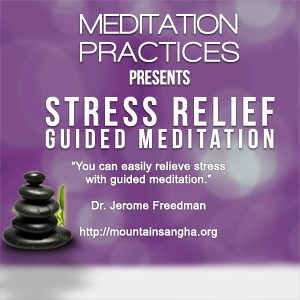

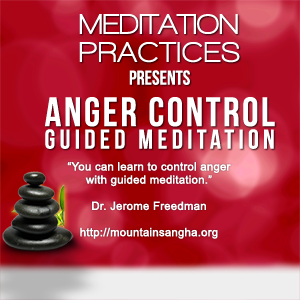
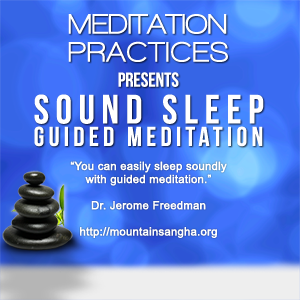


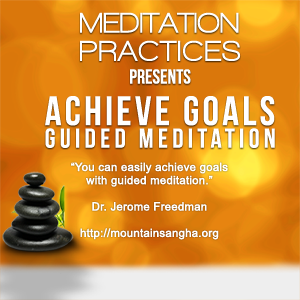

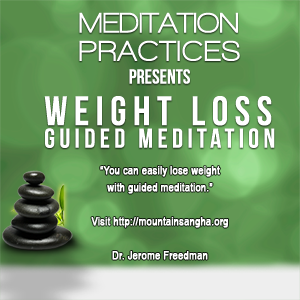


Speak Your Mind
You must be logged in to post a comment.